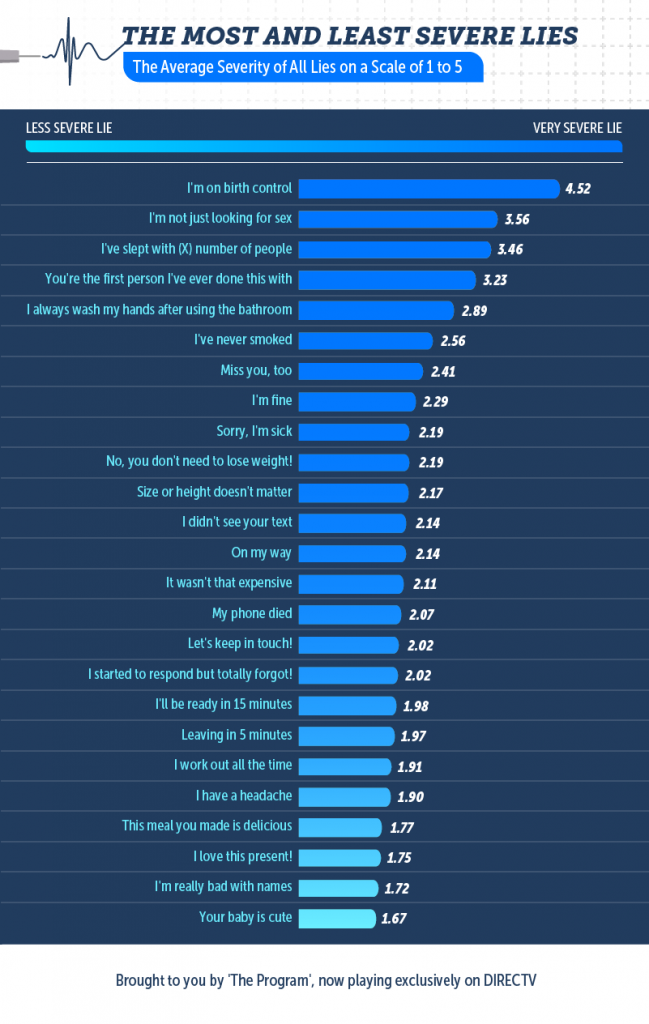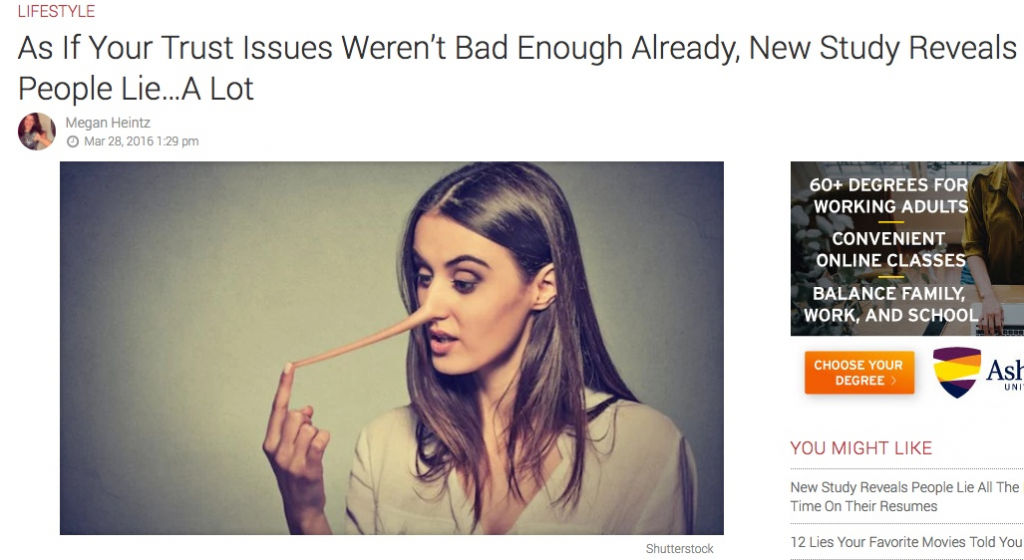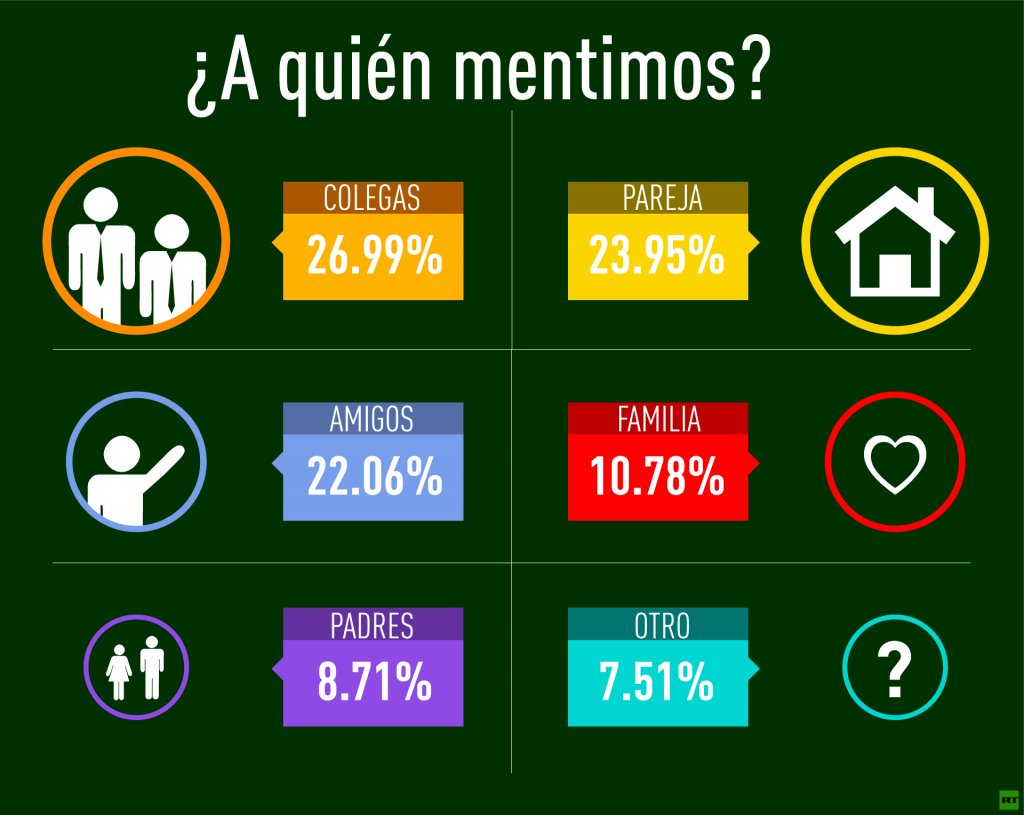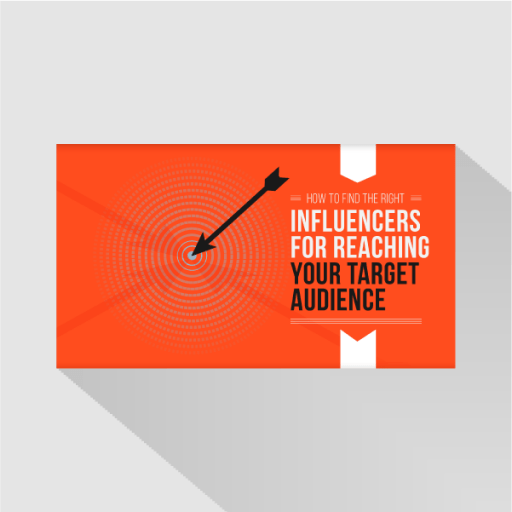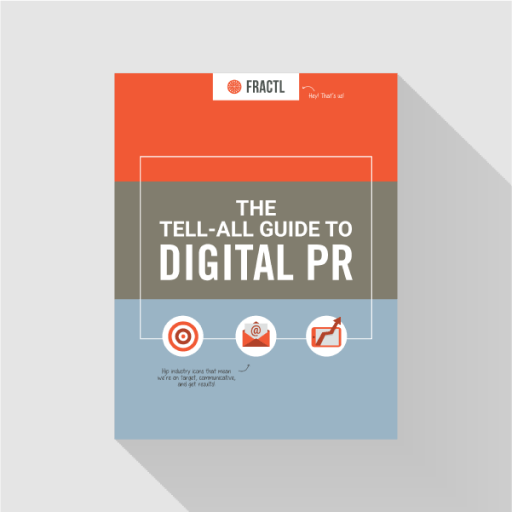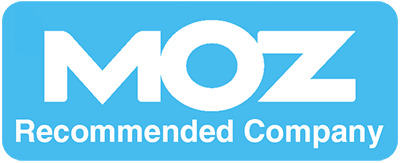A stellar piece of content can do more than look pretty on your site and educate or entertain your audience. With the right digital PR, it can score coverage by top-tier publishers and make the rounds to a range of other sites.
This earned media delivers a diverse set of high-quality links, including dofollows, co-citations (when one site links to another site that links to your content), nofollows, and text attributions. This “healthy” mix signals to Google that these links were natural and not bought.
To help you understand what a quality link profile looks like, we’re going to dissect a healthy backlink report from one of our high-performing client campaigns. We’ll first look at the campaign and then see how our promotional strategy earned links.
Placed The Exclusive? Here’s What Happens Next
Publishers like being the first to report on things, so we use this to our advantage and offer what we call “the exclusive” to a writer. The initial link of a link profile will be the first piece of coverage secured for that particular campaign.
Natural Syndication
The exclusive coverage is getting a lot of attention, which means your content is also being getting a lot of attention. This leads to more coverage on more websites. This natural syndication is extremely valuable because it means you will have more links to add to your link profile, as writes include your content in their articles. While there is no guarantee that all these new links will be dofollows, a diverse link profile will often be considered a success.
Direct/Network Syndication
You may notice that some of the links you are finding include the exact same article, by the same writer, as one of the dofollow links that are already on your link profile. Many top-tier news publishers have large networks of other news websites and, oftentimes, they will publish their original articles across their network. This is great news. The article including a link to your content is being spread across the internet, giving you more links to add to your link profile. These direct syndications might not carry the same amount of SEO value, but they are certainly a fantastic addition to your link profile.
Continued Outreach
The math is simple. The more websites that link to your content provides more opportunity to naturally generate more links to add to your link profile. Sometimes, your exclusive placement might generate a ton of natural or direct syndication. Continuing to pitch your content is essential to making sure that you are adding as many dofollow links to your portfolio as possible.
Over time, and hopefully, after several earned links, you will have a link profile that is heavy on the dofollow links, but also a healthy mix of all link types that are a result of natural syndication.
Getting the Most Out of Your Links with Link Conversions
It’s important to recognize that publishers don’t always include the link attribution you are looking for. Text attributions, as we mentioned earlier, only include a simple mention of your brand or piece of content within an article. The brand recognition is nice, but this type of link is among the least valuable on a link profile. However, by reaching out via email to the writer or editor that is responsible for a text attribution link, you may be able to request that the link to your content be added to their coverage. Oftentimes, leaving the link out is an accident and the publishers are happy to update their article with your link. Of course, other times you will be declined or even no response at all. Successfully converting these types of links really can be a significant improvement to a link profile.
Campaign Case Study: White Lies
Our team came up with a huge list of lies, which we whittled down to 25 and asked survey participants to rank on a scale from 1 to 5 for how severe they thought each lie was, if they’ve been guilty of it, etc. We then visualized the results in a variety of graphics, like this one:
Once the campaign was completed and approved by the client, our digital PR team took over.
Promotion of the Campaign
At Fractl, we never resort to scam-y link-building techniques. Instead, our digital PR associates reach out to writers and editors at publications that would be interested in the campaign.
Because our campaigns are created with both the client’s goals and targeted publishers’ wants and needs in mind, the content is a natural editorial fit.
For this campaign, the client’s goal was to raise awareness for the DIRECTV CINEMA Exclusive pay-per-view release window for the film, “The Program.” That told us to aim for widespread coverage on top-tier publishers’ sites with high domain authority.
Securing the Exclusive
Publishers like being the first to report on things, so we used this to our advantage and offered what we call “the exclusive” to a writer at The Huffington Post.
He wrote about the campaign’s findings, gave an awesome plug and link to DIRECTV, and featured a few of the graphics in his coverage.
With a domain authority of 98, The Huffington Post certainly made a great impression at the top of our inbound link report.
Continuing Outreach
After the initial coverage, two things happen with our high-quality content:
- The digital PR associate continues pitching the campaign to other publishers.
- Other publishers catch wind of the campaign and natural syndication occurs.
After sending the campaign to Elite Daily, it was featured there as well as a dofollow link.
Our digital PR associate also found success with YourTango.

It’s important to note you can expect increases like that in backlink reports you compile or receive.
College Candy responded favorably to our pitch – even inserting a gallery of all the campaign’s graphics.
While the domain authority is lower (62) and social shares fewer (32), this is still great coverage and the link is highly valuable.
Pro tip: Don’t focus only on top-tier publishers. A well-rounded mix of links from sites with varying domain authority tells the search engines your content and site is high-quality.
Also honing in on the “sex” angle, Women’s Health wrote an article about the campaign’s results.
The story was shared 758 times, which is excellent traction.
The last placement that was a result of our outreach efforts was Teen Vogue.
With 637 social shares, this was another publication with a built-in female audience that resulted in a high number of shares.
Now, let’s look at how organic syndication creates a healthy inbound link portfolio.
Natural Syndication
Syndication occurs when one publisher’s coverage of a campaign results in another site picking up that story and covering it as well. And Google likes this – according to their “link schemes” page:
“The best way to get other sites to create high-quality, relevant links to yours is to create unique, relevant content that can naturally gain popularity in the Internet community.”
Sounds like syndication, right?
Near the top of our backlink report are two international sites with a domain authority of 90.
You’ll see plenty of other overseas publishers in the backlink report as well. These sites usually still link to and cite your content directly; see the screenshot from actualidad.rt.com below.
This publisher even redid the campaign’s graphics for its Spanish-speaking audience:
Just under the international sites on the backlink report are two local news sites that picked up the story:
The Detroit radio station WOMC not only linked to our campaign, but it helped spread the awareness for DIRECTV’s “The Program.” Backlinks and brand recognition go hand in hand with high-quality content.
Mix 94.1, a Las Vegas radio show, also wrote about the campaign and provided a backlink to it. This is how they cited our client:
Pro Tip: If a publisher features your content or results but doesn’t include a backlink to your site, you can always request they do so. This is standard practice for our digital PR department when certain sites (e.g., high domain authority publishers) cover our campaigns but don’t include a dofollow link.
Syndicating on Low-DA Sites
While a backlink from a site with a low domain authority won’t do much for your site’s search engine ranking on its own, links from sites with a wide range of authority help to paint the whole picture for Google.
Look at these links from our report:
The domain authority here is rather low, which tells Google that all levels of publishers found our campaign interesting and chose to spread it on their own.
Syndication also occurs on social media, which we’ll get into in our next section.
Other Link Types
So far we’ve examined dofollow links, which pass the most “SEO juice” from one site to another. Now, let’s look at the other types of links.
The next part of our backlink report shows co-citations (when a publisher links to a third-party site instead of yours). Co-citations incrementally raise the value of the initial link.
Here are the first three:
The LinkedIn link is an article a user shared on his account. While LinkedIn boasts a domain authority of 100, links from users don’t carry as much weight as “regular” publishers. What matters more with social network links is engagement (comments, likes, etc.).
The MY 102.5 and Times Union links are considered a co-citation because they link to The Huffington Post article about our campaign.
Co-citations are also a valuable part of a healthy backlink report because they show multiple publishers found your content important.
In addition to over 100 co-citations, our backlink report includes four nofollow links of varying domain authority.
A nofollow link is a direct hyperlink to your content, but it blocks any SEO value from being passed.
Sounds pretty meh, right?
There’s actually a lot of hidden value in nofollow links. When a top-tier site like Yahoo uses a nofollow link, other publishers can pick up the story and include a dofollow link to your site. Plus, getting in front of Yahoo’s audience is a great brand booster!
Speaking of brand recognition, this is the main perk to the last type of link in our backlink report: text attribution.
Here are a few from the report:
Sure, it’d be great if the NY Post included a dofollow link to the campaign, but check out the nice brand plug below:
Plus, Google aims to recognize brand authority in an organic way, including text attributions.
Offline Media
While TV, radio, and print coverage can’t provide backlinks, they are a bonus that help with brand recognition.
Our White Lies campaign was the talk of the TODAY show anchors during a segment. And check out the nice DIRECTV plug on one of their graphics:
Read our post on six other content marketing campaigns that gained screen time.
Balance Is Key to Healthy Backlink Report
A strong content marketing campaign earns a well-rounded mix of backlinks. This includes the different types of links (dofollow, co-citation, nofollow, and text attribution) and the domain authority of linking sites.
While other kinds of marketing like native advertising guarantee one link from a top-tier publisher, high-quality content that’s aimed at enriching the internet community is in line with how Google ranks sites.
Check out the full backlink report here to see the hundreds of publishers who saw value in our campaign and chose to share it with their readers.


